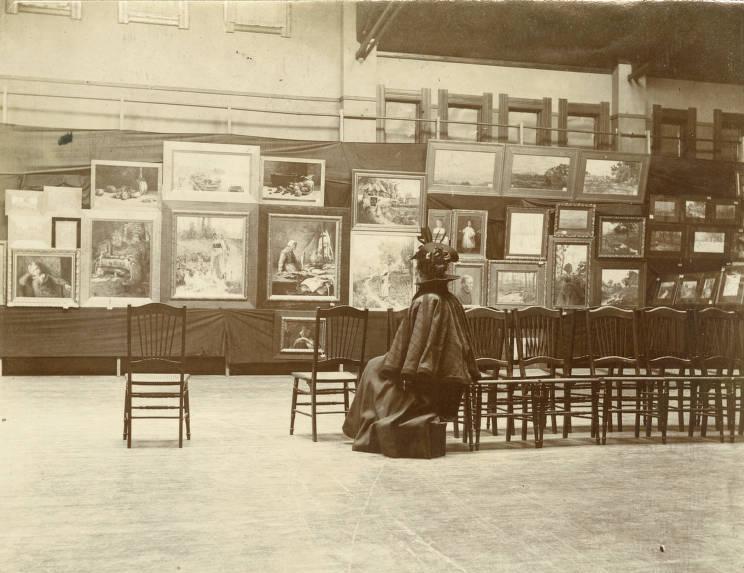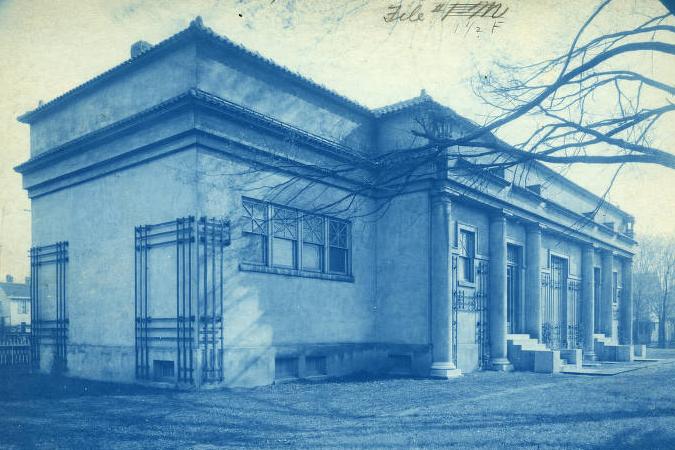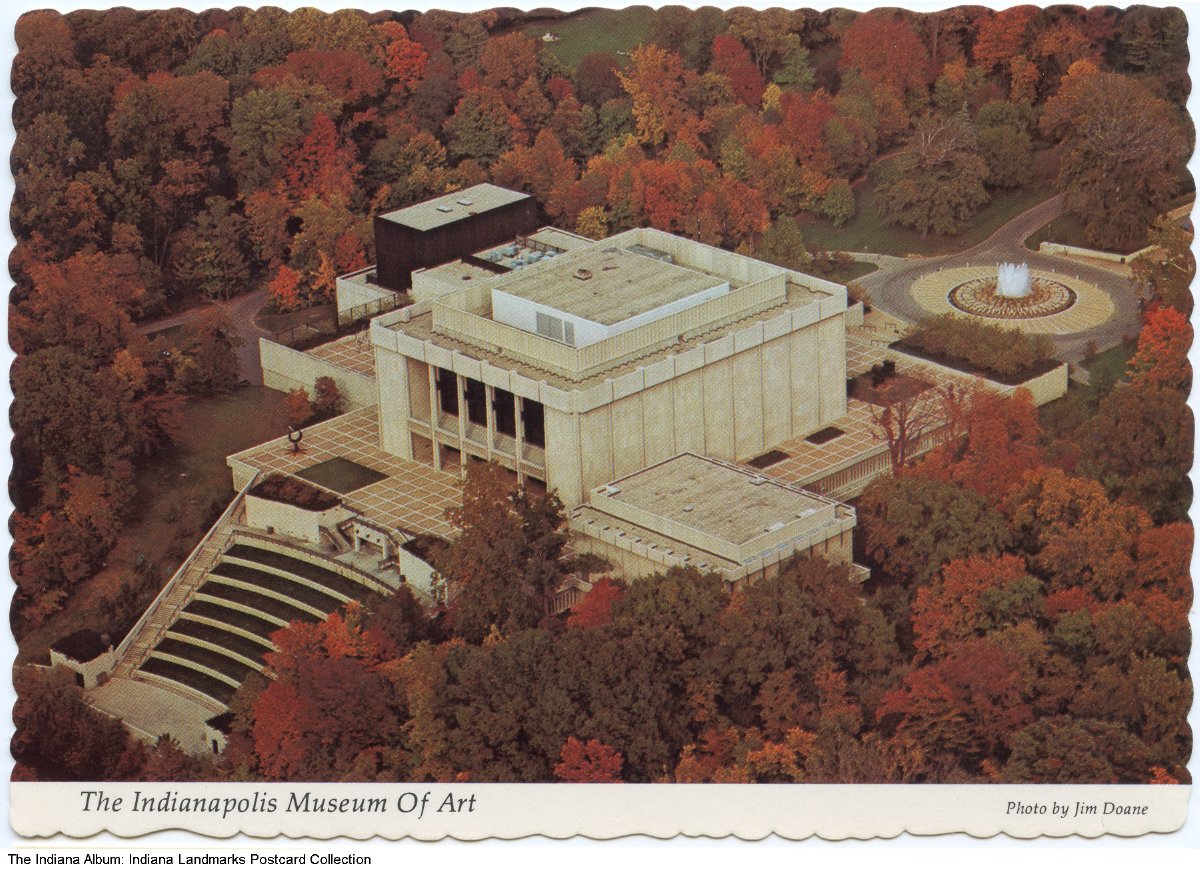Organized in March 1883, through the efforts of and 17 other women, the Art Association of Indianapolis incorporated in October 1883, with Albert E. Fletcher, son of , serving as its first president. Its mission was to promote and study art in Indianapolis, a goal to be achieved through an annual exhibit, an art school, and a permanent museum.

The association’s first exhibit in November 1883, consisted of 435 paintings by 137 different artists and was held in the . Its permanent collection began with the purchase of two paintings from that exhibit: by Harry Chase, and by Percival DeLuce.
From 1883 to 1896 exhibits were held in the Masonic Hall, the old , and the H. Lieber Company Galleries. Then exhibits shifted to the (1896-1902) and John Herron Art Institute (1906-1969). Among the more notable early exhibits were an annual show by Indiana artists begun in 1908, a 1910 showing of works by sculptor Augustus Saint-Gaudens (attended by 56,000 people), and a 1912 exhibition for the Association of Women Artists, an organization founded as platform for professional women artists.

In January 1884, the Art Association opened an art school in a parlor at the with Charles P McDonald of the Chicago Art League as headteacher, although financial difficulties forced its closure the next year. For much of the 1890s, the Art Association managed the second Indiana School of Art founded by and in 1887. Then, in 1895, the association received a bequest of $225,000 from the estate of John Herron to build an art museum and art school in his memory.
In January 1902, the Art Association purchased a house on the corner of 16th and Pennsylvania streets for $50,000 and opened the John Herron Art School. Increased enrollment prompted a temporary move to the Union Trust Building and construction of a larger facility. Designed by the Indianapolis firm of , the , housing both an art school and a museum, opened on November 20, 1906.

Initially housed in two rooms in the museum, the art school moved into its own building in 1907. The school was rebuilt in 1928 through a gift of $200,000 from , daughter of the founder of the Marmon Motor Car Company and president of the Art Association from 1941 to 1947. Designed by renowned Philadelphia architect Paul Phillipe Cret, the new building opened in 1929. Recognizing that the school’s needs were expanding beyond its resources, the Art Association turned the school over to Indiana University in 1967.
In 1906 the association’s art collection consisted of fewer than 100 paintings. Under the guidance of , director of the museum from 1929 to 1965, the collection expanded by many thousands of items, necessitating extensive remodeling and reconstruction of the building in 1940-1941. In 1966 the Lilly family donated the 44-acre Oldfields estate, located at 1200 West 38th Street, to the Art Association. After turning over the John Herron Art Museum building to the Herron School of Art (a division of ), the Art Association of Indianapolis officially became the in 1970 with its relocation to the Krannert Pavilion.
FURTHER READING
- Robinson, Anne P., et al. Every Way Possible: 125 Years of the Indianapolis Museum of Art. Indianapolis Museum of Art, 2008. https://search.worldcat.org/en/title/234257175.
CITE THIS ENTRY
APA:
Duvall, J. A. (2021). Title. Encyclopedia of Indianapolis. Retrieved Feb 13, 2026, from https://indyencyclopedia.org/art-association-of-indianapolis/.
MLA:
Duvall, Jeffery A. “Title.” Encyclopedia of Indianapolis, 2021, https://indyencyclopedia.org/art-association-of-indianapolis/. Accessed 13 Feb 2026.
Chicago:
Duvall, Jeffery A. “Title.” Encyclopedia of Indianapolis, 2021. Accessed Feb 13, 2026. https://indyencyclopedia.org/art-association-of-indianapolis/.

Help improve this entry
Contribute information, offer corrections, suggest images.
You can also recommend new entries related to this topic.